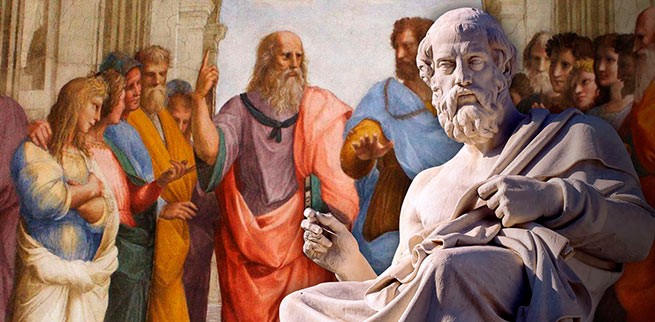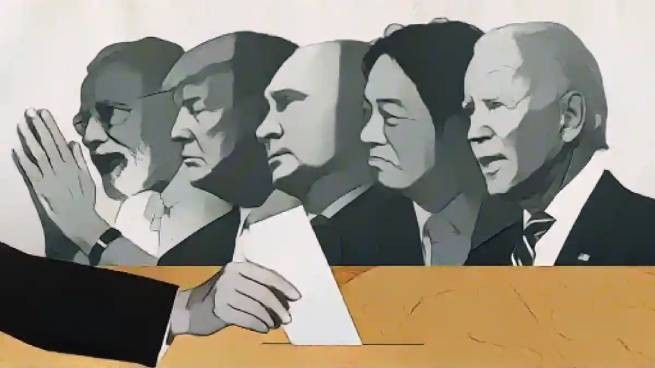There will be many important elections in 2024, preparations for which are already in full swing in some places. Two billion people in 50 countries will go to the polls – more than in any other year in history.
The expected changes in the governments of different countries can decisively change the geopolitical balance and significantly affect Western support for Ukraine, the Middle East conflict, and the global economy. The elections will also test the resilience of democratic systems amid concerns about tightening authoritarian rule.
euronews tells on the 2024 elections that could shape the shape of Europe:
1. The US presidential election will take place on November 5th. Many experts believe that the prospect of the return of former President Donald Trump makes 2024 an explosive year in world politics. However, it’s not all that simple – the Colorado Supreme Court ruled that Trump cannot run in this state due to his actions before the attack on Capitol Hill in January 2021.
Of course, Trump’s advantage over his rivals means he could still win even without being elected in Colorado, but the ruling sets a powerful precedent for similar lawsuits in other states: Maine became the second state in the US to block former President Donald Trump from primaries in 2024. The corresponding decision of State Secretary of State Shanna Bellows was published on the official website of Maine, reports Forbes.
Trump’s rise to power could upset the West’s agreed policy towards Ukraine, as some Republicans call for limiting military and financial aid to Kyiv. A Trump victory could also mean a return to trade disputes. The last Republican administration imposed massive tariffs on goods from European allies in an attempt to protect American manufacturers. Both sides agreed to a temporary truce, but Trump vowed to impose 10% tariffs on all foreign imports if elected.
The change in Washington administration could also affect negotiations to allow the European Union to export critical minerals used to make electric batteries to the United States without imposing tariffs under the Inflation Relief Act.
2. European elections will be held on June 6-9 – 27 member countries EU will decide who will represent their interests in the European Parliament. Typically, huge elections suffer from low turnout and voter apathy – many of whom feel the EU is too far from their daily lives. Projections of a sharp rise in support for Eurosceptics and far-right parties – bolstered by recent electoral successes for such politicians in the Netherlands, Italy, Finland and Sweden – are sowing doubts about the EU’s future path.
The economic slowdown in major EU countries, rising rural discontent, climate change and migration will dominate the election campaign. The election will also decide who will lead the European Commission, with Ursula von der Leyen expected to re-run her candidacy and make a major reshuffle of the EU’s top positions.
3. Legislative elections in Portugal are scheduled for March 10. They were appointed by the Portuguese President in November, following the resignation of Socialist Prime Minister António Costa. He remained in his post in an interim capacity amid a massive corruption investigation.
Polls show a tight race, with Nuno Santos’ Socialist Party and its conservative opposition, the Social Democratic Party, now tied with 27% of the vote. The Chega party, which is claiming victory and seeking to disrupt the traditional two-party system, is hot on the heels of the two main parties with 17% of the vote.
4. On June 9th there are federal elections in Belgium. They will be double – European and federal will be held on the same day. The country of 11.6 million people is known for its fractured politics and complex power-sharing arrangements, with no fewer than seven parties in its current coalition government.
Opinion polls show that the far-right Flemish independent Vlaams Belang is leading in Flanders, the Socialist Party is leading in Wallonia, and the liberals are winning in Brussels. With the current seven-party coalition gaining enough support to be re-elected, Prime Minister Alexander De Croo will want to use Belgium’s six-month EU Council presidency, which begins in January, to score political points at home.
5. Elections to the Austrian Legislative Assembly are expected in the fall. They could prove to be among the most important as Europe tries to contain the rise of the far right.
The Austrian Freedom Party currently has 30% of the vote. By backing away from austerity measures during the COVID-19 pandemic, criticizing the economic impact of EU sanctions against Russia and populist policies, she has gradually regained the trust of right-wing voters, which was significantly shaken in 2019 by the Ibiza scandal. Then Vice-Chancellor and FPÖ leader Heinz-Christian Strache was filmed soliciting political favors from Russian business contacts. If the trend continues, it is quite possible that the next chancellor of Austria will come from the ranks of this far-right party.
And other elections worth paying attention to:
- In January Finland will choose a new president.
- Parliamentary elections in Lithuania will take place on May 12, and in Croatia on September 22.
- Presidential elections in Ukraine should take place in the spring, but the law prohibits voting under martial law.
- In Russia citizens will choose the next president on March 17.
- Elections scheduled in Iran on March 1 and in Belarus on February 25.
- In Indonesia general elections will be held on February 14, and in India – in April-May. Voting in Indonesia will be the world’s largest single-day election, with more than 200 million people taking part.
- In Taiwan The presidential elections will take place on January 13.
- Great Britain will hold a general election before the end of 2024, Prime Minister Rishi Sunak has confirmed.







More Stories
Congressmen warn ICC about sanctions because of Netanyahu
From November 1st, an electronic conscription system will be launched in the Russian Federation.
In a Ukrainian circus, child acrobats fell from a height (video)